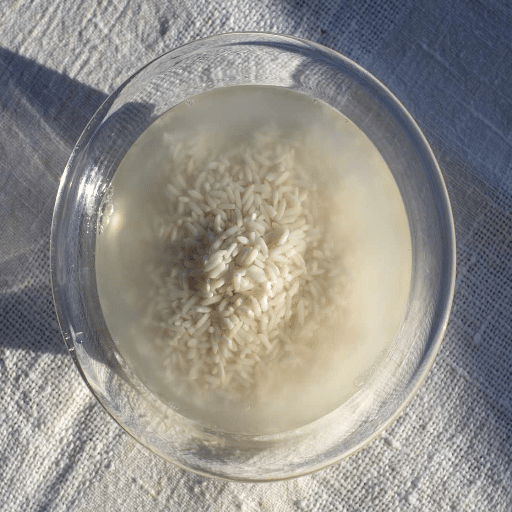Besides science, traditional approaches have significantly contributed to modern-day strategies for weight loss. Throughout the years, weight loss and management strategies have tremendously evolved, and so has the treatment for it. Many methods are offered, and some dietary interventions are of much interest when discussing weight issues. For instance, apple cider vinegar enhances metabolism whilst curbing the appetite, whereas rice is an energizing and nutritious staple food. The two components form an intriguing narrative when discussing weight loss. This article seeks to answer the question of how Apple Cider Vinegar and Rice can combine to form a sustainable weight loss solution in the year 2025. Practical applications and scientific insights will be embedded in the writing. Particularly if you are looking to optimize your dieting plan or want a deeper insight into nutritional strategies, this guide will be relevant because it will show you how to exploit the two ingredients mentioned above to reach your dieting goals.
What are the benefits of apple cider vinegar for weight loss?

What Is The Mechanism By Which Apple Cider Vinegar Aids Weight Loss?
There is a plethora of research that supports the notion of acetic acid being an effective weight loss agent, and apple cider is one healthy beverage loaded with acetic acid, apple cider vinegar can help increase your metabolism and reduce fat storage. Other than that, it can also reduce gastric cooking, reducing your taking in more calories. Additionally, some studies indicate that it lowers insulin levels from your food and minimizes overeating. With all this being said, do keep in mind that apple cider vinegar should be seen as a supplement rather than an instant solution to weight loss.
Are There Mechanisms That Support Apple Cider Vinegar’s Fat Burning Ability?
ACV is known to assist in fat oxidation and higher absorption efficiency. Moreover, when a person consumes apple cider vinegar, their fat stores are broken down into fatty acids which results in weight loss, apple cider has more benefits than just fat loss as it also helps in improving blood circulation and enhancing the body’s metabolic rate. It is also known that apple cider vinegar boosts AMPK activity, which is vital in promoting metabolism and lowering fat storage.
The data provided by the 2009 Bioscience, Biotechnology and Biochemistry study introduces the idea that the optimization of lipid metabolism coupled with the reduced deposition of fat may result in increments that lead to the reduction of body fat percentage and BMI, given that the participants in the trials consumed 15-30 mL of apple cider vinegar daily for 12 weeks. On the contrary, these results can be deemed ineffective on their own and must be coupled with a proper diet plan and exercise routine to allow for meaningful fat loss. In short, more research is needed to determine the validity of the results alongside their efficiency as there is a deficit of controlled research studies available.
Can apple cider vinegar promote healthy weight loss?
The usage of apple cider vinegar can aid in curbing weight gain as it has an appetite-suppressing impact, lowering blood sugar levels and further enhancing digestion. That said, there is a scientific lacuna regarding apple cider vinegar aiding with long-term weight loss. The correlation between weight loss and the incorporation of apple cider vinegar can be deemed minimal at best, with a certain correlation between diet, exercise, and weight loss alongside vinegar. In conclusion, apple cider can be of hefty assistance to certain individuals, but it should not be completely relied upon as a sole solution for major weight loss.
How can I incorporate apple cider vinegar into my weight loss plan?

How to use apple cider vinegar for weight loss?
One of the most effective methods of incorporating apple cider vinegar into the diet to lose weight is mixing one or two tablespoons into a full glass of water before consumption, which should be done daily. The high acidity level of apple cider vinegar is known to cause damage to the body’s esophageal and dental regions that it comes in contact with; its pH level ranges between two and three, which is relatively low. Consuming it before a meal might also reduce the chances of overeating by speeding up gastric emptying and suppressing appetite. However, as every technique has its cons, apple cider vinegar also does. It can cause digestive pain, depletion of potassium levels or even interfere with the efficacy of some prescribed medications. It is recommended to keep the daily intake no higher than 2 tablespoons to avoid these negative repercussions.
Is It A Good Idea To Take Apple Cider Vinegar Before Reaching For A Meal?
The apple cider vinegar helps one feel full faster and also helps to normalize the body’s blood sugar levels. It contains great amounts of acetic acid which increases gastric emptying time causing blood sugar spikes after a meal to decrease, in saying this higher levels of caution should be taken as the compound also measures PH levels from ranging 2-3, which is quite acidic and can be dangerously harmful to the teeth and cause irritation in the digestive tract. Some factors Overuse may cause the following consider including:
- Recommended Dosage: 30mL (2 tablespoons), which is diluted in water, should be limited as there are negative impacts due to the overuse of it.
- Overuse may cause the following to consider, including: PH)): In gastric acid, which undiluted can damage one’s teeth while abusing it, combined with the like of esophagus for exposure.
- Nutritional values: These would contain antimicrobial elements alongside trace elements and acid with acetic composition.
In saying this, I would recommend people who are already sick and taking medication to consult with an expert as the apple cider can result in low potassium levels or mess with the bone mineral density levels of the body.
In what ways can I incorporate apple cider vinegar into my daily meals?
The use of apple cider vinegar in your meals can be done in an easy way. A much more common approach is mixing 1-2 tablespoons of apple cider vinegar with a large glass of water and drinking it before a meal to promote digestion. In addition, ACV can be used as a salad dressing by mixing it with olive oil and spices or as a marinade to give meats a sour kick. Herbal or other teas can also contain apple cider vinegar or it can be used instead of lemon juice as an acid in recipes. Always start with little amounts to check tolerance to avoid overuse and negative side effects.
What’s the science behind apple cider vinegar and weight loss?

What role do apple cider vinegar play in improving metabolic rate?
Multiple mechanisms pave way for apple cider vinegar to enable metabolic exertion. This needs a higher caliber set of research done to make it more evident and Posed in one of the breath: apple cider vinegar helps in regulating blood glucose. People may make an excellent analysis using insulin sensitivity; Acetic acid, which is the main ingredient, reduces postprandial spikes in blood glucose levels as well as the glycemic reaction to carbohydrate-rich meals. This goes a long way to enhance metabolism and reduce fat accumulation.
Also, it is possible that apple cider vinegar can enhance the feelings of fullness, which would decrease calories consumed. Research has demonstrated that acetic acid slows gastric emptying allowing the stomach to retain its contents for a longer duration. This is supported by things like the reduction of energy intake by something like 200 to 275 kcal/day when apple cider vinegar is taken with food under experimental conditions.
- Acetic Acid Content: Regular apple cider vinegar has 5-6% content: the ingredient which facilitates improved insulin response and satiety.
- Dosage: The most common dosages studied are between 15–30 mL/day (1–2 tablespoons diluted in water). High outperforming all of this may lead to some degree of bowel discomfort or enamel erosion.
- Impact on Blood Glucose: Together with carbohydrate rich diets apple cider vinegar has been shown to reduce blood glucose after meals by an impressive rate of about 20-35%.
Even though ACV has some promising properties, it should be used in conjunction with a balanced diet and not relied upon by itself, so as to help with metabolic health. Further research is, however, necessary to support these findings.
What does research say about apple cider vinegar’s weight loss benefits?
The evidence for apple cider vinegar’s ability to promote weight loss is tentative at best. Based on prior literature review, consumption of acetic acid, which constitutes the primary component of ACV, may help in appetite suppression, fat storage reduction and metabolism enhancement. For instance, in a well-cited research, modest mean weight loss and reduction in abdominal fat was observed after daily consumption of ACV for 12 weeks. Furthermore, its effect on blood sugar regulation may also promote eating less and feeling fuller which may further assist in weight management goals. Still, the overall impact is often mild and should only be taken as an addition to a good eating and exercise routines. Further long term and more extensive studies are required to assess its efficacy and develop proper guidelines for its use.
How can rice complement apple cider vinegar in a weight loss journey?

Which Rice is Right for Apple Cider Vinegar for Weight Loss ?
When it comes to losing weight, brown rice works very well with apple cider vinegar. This is again due to the high fiber content of the food. The other suggested benefit is that it is more efficient in regulating blood sugar levels, thus complementing the appetite-suppressing effects of apple cider vinegar. With stone-ground brown rice, you also get more nutrients than white rice. Together, these two foods may increase the effectiveness of a proper weight loss program when included in a healthyest of all operating instructions and diet.
How can rice and apple cider vinegar work together to achieve Weight Loss Goals?
Having a glycemic index of about 50 makes brown rice a low-GI carbohydrate that burns slowly, thus providing energy non-stop and preventing major blood sugar spikes and crashes. This is beneficial since it lessens the phases of intense hunger before meals and ensures that one stays satisfied longer after eating. It yields results due to its fiber content which is estimated to be 3.5g for every 100g of food as it permits easier digestion and contributes to effective gut functioning.
Apple cider vinegar (ACV) can help you lose weight. Acetic acid, which makes up roughly 5-6% of their composition, has been found to assist in fat dissolution. Research indicates that lowering body weight and waist size can be achieved by ingesting 15-30 ml of ACV regularly. Post-meal blood sugar levels are known to aggravate appetite and cravings for sugar; however, consuming turnips can lower the body’s response in such scenarios.
However, it must be noted that weight management can be further advanced by regularly performing physical exercises alongside following a controlled and balanced diet.
Are there any risks or side effects of using apple cider vinegar for weight loss?

What are the safety measures to keep in mind when incorporating apple cider vinegar into my diet?
Given the following points, one can take the necessary precautions so that there is safety in the use of apple cider vinegar (Acv):
- Dilution: It is important to emphasize that Apple cider vinegar, just like any other form of vinegar, is highly acidic and therefore it should be consumed in a diluted form. This is because undiluted apple cider vinegar can irritate the stomach lining as well as esophagus and can also harm the tooth’s enamel. For every 1-2 tablespoons (30-15 ml) of vinegar at least eight ounces (240 ml) of water should be used.
- Dosage: Usage should be restricted to the acceptable levels of 15-30 ml per day. Overuse may negatively impact the person. The negative effects may include lowering the potassium levels (hypokalemia) and also delayed emptying of the stomach which can disrupt the process of digestion.
- Timing: For optimum efficiency of the sour beverage, it is best to consume it before or with meals so that it can keep blood sugar spikes in track. However, for someone who is more prone to getting sensitive in the stomach while taking acv on an empty stomach these timings are better to avoid.
- Allergies and Pre-existing Conditions: If the person suffers from low potassium levels, gastroparesis or is on diuretics, or insulin, it is best to seek medical help prior to consuming apple cider vinegar since it might enhance the output.
- Topical Use: Whenever considering topical use of ACV, it has to be mixed in a certain ratio for an effective way to use it. There needs to be 1 part of ACV and 2-3 parts of water so as the person applying it to their skin does not encounter skin rashes or chemical burns.
ACV should be included in your meal but make sure that you abide by the above mentioned guidelines to avoid any side effects of it.
Is It Safe To Take Use Apple Cider Vinegar With Other Medications Or Health Concerns ?
Definitely, apple cider vinegar might cause interaction with some medications as well as consider few health conditions. Since it has the ability to alter blood glucose levels, it is important to avoid mixing ACV with diabetes medications as it may lead to a decrease in the blood glucose levels. In addition, it has the ability to reduce potassium levels causing issues for patients using diuretics or other drugs which control levels of potassium in the body. Also, individuals that suffer from digestive issues like gastroparesis or any other issue will find ACV worsens their symptoms as it has a strong affect on the process of digestion. If you are taking insulin or diuretics and other same heart medications or thyroid medications or have any health problems that its ingestion can cause then it is important to seek guidance from your doctor prior to using ACV.
How can I use apple cider vinegar and rice to create an effective weight loss plan?

How can I incorporate rice and apple cider into my meals if I am trying to lose some weight?
1.Rice Bowl with Cider Vinegar
Prepare one cup of brown rice and add apple cider vinegar, 2 to 3 tablespoons of apple cider vinegar to it. Broccoli and spinach can be steamed for additional nutrition and can be included in the dish after it has cooled down. Soy sauce, oregano and parsley can be used as seasoning.
2.Rice Salad with Apple Cider Vinegar
Liberal amounts of wild rice or quinoa can be mashed up and mixed with finely chopped cucumbers tomatoes and gourd carrots for a salad bowl. Simply whisk up one tablespoon or Apple cider vinegar a teaspoon or olive oil and a sprinkle of some black pepper, and drizzle generously on the salad bowl.
3.Vegetable Stir Fry complemented with Rice Glaze
Zucchini, bell peppers and mushrooms can be fried to make a vegetable mix. Adding previously cooked brown rice to the vegetables works well, while a combination of one tablespoon apple cider vinegar and soy sauce can be drizzled for added flavor.
These dishes make good use of rice’s fiber and complex carbs while also taking into consideration Apple cider vinegar’s potential advantages, keeping calories low while still being filling and promoting weight reduction. Portions must be adjusted to fit the person’s specific needs.
What weight loss targets should one establish for themselves once this method is employed?
To achieve realistic weight loss goals while using this method, one should start with the health recommendation of gradually and sustainably losing an average of a pound or two per week. Plan out your daily calories and work out a reasonable caloric deficit starting from healthy meals and exercise. Include the nutrient dense recipes within the meal plan focused on moderation and whole foods to avoid malnutrition. Evaluate your performance against your targets on a consistent basis and modify dietary intake or physical activities accordingly as required. Combining apple cider vinegar recipes with good consistent planning and strategizing will help in achieving weight loss goals which are reasonable and sustainable in the long term.
Reference sources
Frequently Asked Questions (FAQs)

Q: What are the apple cider vinegar benefits for weight loss?
A: Apple cider vinegar may help support weight loss efforts in several ways. The acetic acid in apple cider vinegar can potentially increase fat burning, reduce appetite, and improve metabolism. Some studies suggest that it may also help regulate blood sugar levels, which can contribute to weight management.
Q: How does an apple cider vinegar diet work?
A: An apple cider vinegar diet typically involves consuming small amounts of apple cider vinegar daily, often mixed with water or other beverages. While it’s not a standalone weight loss solution, incorporating apple cider vinegar into a balanced diet and exercise routine may aid in weight loss by potentially reducing calorie intake and increasing feelings of fullness.
Q: Can apple cider vinegar help burn fat?
A: Some research suggests that the acetic acid in apple cider vinegar may help burn fat by increasing the activity of certain enzymes that break down fat. However, it’s important to note that apple cider vinegar alone is not a magic solution for burning fat, and should be combined with a healthy diet and regular exercise for optimal results.
Q: How much apple cider vinegar should I consume for weight loss?
A: If you’re trying to lose weight and want to incorporate apple cider vinegar, most studies suggest consuming 1-2 tablespoons (15-30 ml) per day. It’s typically recommended to dilute this amount in a large glass of water and drink it before meals. However, it’s essential to consult with a healthcare professional before starting any new supplement regimen.
Q: Are there any risks associated with consuming apple cider vinegar for weight loss?
A: While apple cider vinegar may offer some benefits, it’s important to be aware of potential risks. Apple cider vinegar is highly acidic and may cause tooth enamel erosion, throat irritation, or digestive issues if consumed in large quantities or undiluted. It may also interact with certain medications, so it’s crucial to speak with a healthcare provider before adding it to your diet.
Q: Can combining apple cider vinegar and rice support weight loss?
A: While there’s no specific research on the combination of apple cider vinegar and rice for weight loss, both can be part of a healthy diet. Apple cider vinegar may help with weight management, while rice (especially brown rice) can provide fiber and nutrients. However, it’s important to maintain a balanced diet and not rely solely on these foods for weight loss.
Q: How long does it take to see results when using apple cider vinegar for weight loss?
A: The timeline for seeing results can vary greatly among individuals. Some studies have shown modest weight loss effects over a period of 12 weeks when apple cider vinegar is combined with a calorie-restricted diet and exercise. However, it’s important to have realistic expectations and understand that sustainable weight loss takes time and consistent effort.
Q: Can apple cider vinegar help reduce belly fat specifically?
A: While some claim that apple cider vinegar aids in targeting belly fat, there’s limited scientific evidence to support this. Apple cider vinegar may contribute to overall weight loss, which could include a reduction in belly fat. However, spot reduction of fat from specific areas of the body is generally not possible, and a comprehensive approach to diet and exercise is necessary for losing belly fat.





